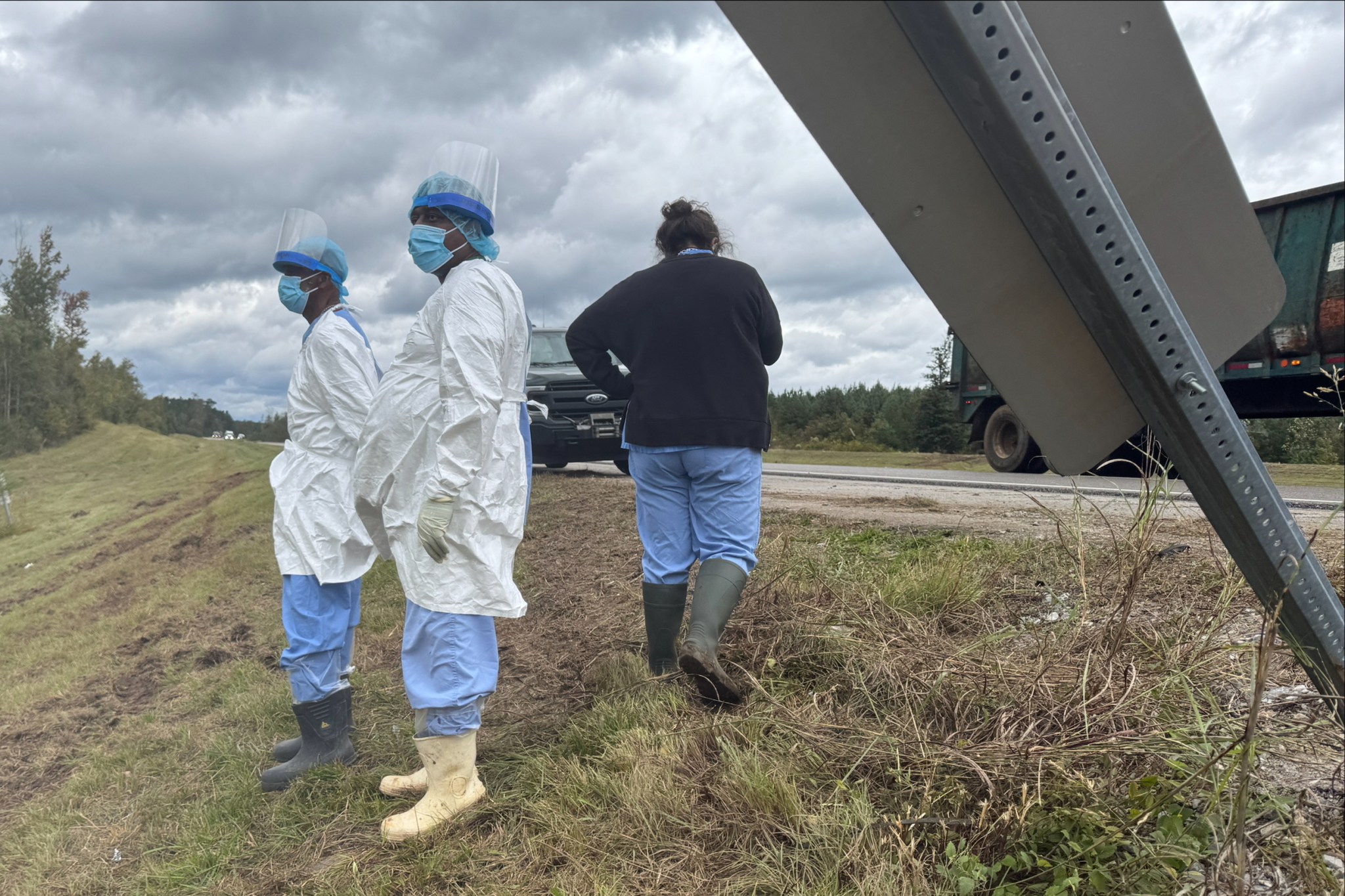
Jessica Bond Ferguson was alerted early Sunday by her 16-year-old son, who thought he had seen a monkey running in the yard outside their home near Heidelberg, Mississippi. She got out of bed, grabbed her firearm and cellphone, and stepped outside, where she spotted the monkey about 60 feet (18 meters) away.
Bond said she and other residents had been warned about diseases that the escaped monkeys could carry, so she fired her gun. “I did what any other mother would do to protect her children,” Bond, who has five children ranging in age from 4 to 16, told The Associated Press. “I shot at it and it just stood there, and I shot again, and he backed up and that’s when he fell.”
The Jasper County Sheriff’s Office confirmed in a social media post that a homeowner had found one of the monkeys on their property Sunday morning but said the office didn’t have any additional details. The Mississippi Department of Wildlife, Fisheries, and Parks later took possession of the monkey, the sheriff’s office said.
The Rhesus monkeys had been housed at the Tulane University National Biomedical Research Center in New Orleans, Louisiana, which routinely provides primates to scientific research organizations, according to the university. In a statement last week, Tulane said the monkeys do not belong to the university, and they were not being transported by the university.
A truck carrying the monkeys overturned Tuesday on Interstate 59 north of Heidelberg. Authorities reported that most of the 21 monkeys were killed in the accident. The sheriff’s department said animal experts from Tulane examined the trailer and determined that three monkeys had escaped.
The Mississippi Highway Patrol is investigating the cause of the crash, which occurred about 100 miles (160 kilometers) from the state capital, Jackson.
Rhesus monkeys typically weigh about 16 pounds (7.2 kilograms) and are among the most medically studied animals on the planet. Video recorded after the crash showed monkeys crawling through tall grass beside the interstate, where wooden crates labeled “live animals” were crumpled and strewn about.
Jasper County Sheriff Randy Johnson said Tulane officials reported the monkeys were not infectious, despite initial reports by the truck’s occupants warning that the monkeys were dangerous and harboring various diseases. Nonetheless, Johnson said the monkeys still needed to be “neutralized” because of their aggressive nature.
The monkeys had recently received checkups confirming they were pathogen-free, Tulane said in a statement Wednesday.
About 10 years ago, three Rhesus macaques in the breeding colony of what was then known as the Tulane National Primate Research Center were euthanized after a “biosecurity breach,” federal inspectors wrote in a 2015 report. The breach involved at least one staff member failing to adhere to biosafety and infection control procedures. The facility made changes in its procedures and retrained staff following the incident, according to the report from the U.S. Animal and Plant Health Inspection Service.
Rhesus macaques “are known to be aggressive,” according to the Mississippi Department of Wildlife, Fisheries and Parks. The agency’s conservation workers are cooperating with sheriff’s officials in the search for the escaped animals.
https://fortune.com/2025/11/02/escaped-research-monkey-shot-mississippi-mom-tulane-biomedical-center/





